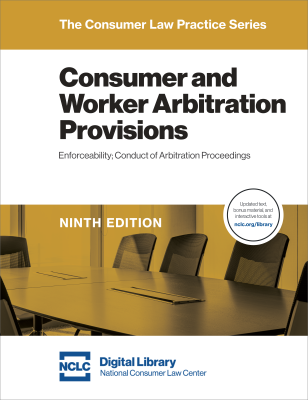On December 14, the Supreme Court issued its decision in DirecTV, Inc. v. Imburgia, reversing a California Court of Appeals decision from last year. The case involved a clause in DirecTV’s consumer arbitration agreement that expressly prohibited class actions in arbitration but also provided that, “[i]f . . . the laws of your state would find this agreement to dispense with class arbitration procedures unenforceable, then this entire section is unenforceable.”
The clause was drafted before the Supreme Court’s decision in AT&T v. Concepcion, 563 U.S. 333 (2011), in which the Court held that state laws prohibiting so-called “class waivers” are preempted by the FAA because class actions conflict with the fundamental attributes of arbitration. At the time, DirecTV intended to protect itself against the possibility of class arbitration, a prospect that many businesses find more concerning than class action litigation in court. It drafted its clause to protect against application of state laws like California’s that prohibited class waivers in arbitration clauses.
Confronting the interpretation of this clause after Concepcion, the state appeals court held that the clause’s “laws of your state” language should be read to apply California state law pre-existing Concepcion, and not federal arbitration law, to the claims of a California consumer plaintiff, and accordingly held that the “class action waiver is unenforceable under California law, so the entire arbitration agreement is unenforceable.” At the heart of this decision was the determination that the clause was at the very least ambiguous with regard to whether the “laws of your state” language implicitly incorporated federal law preempting state law, and that under the doctrine of contra proferentem, ambiguities should be interpreted against the drafter.
The Supreme Court reversed. In a decision authored by Justice Breyer the Court reaffirmed two fundamental principles: (1) parties can contract around the FAA; and (2) contract interpretation is generally a question of state law. In a somewhat strained analysis, however, the Court held that the state court had erred because it applied principles of contract interpretation unevenly—in other words, that “laws of your state” would be interpreted differently in any context outside of arbitration as meaning the “valid laws of your state.” Because the Federal Arbitration Act prohibits state courts from singling out arbitration clauses for disfavor relative to other types of contracts, the Court held that the state court’s analysis was effectively preempted by the FAA.
The Court’s holding is open to challenge. Not only is its analysis strained by the impossibly-hypothetical question of what the California court would have done with this precise language outside of the arbitration context, but it appears to assume that California law regarding the enforceability of class waivers was entirely abrogated by Concepcion. In fact, pre-Concepcion state law continues to apply in a number of contexts in cases that are not subject to the FAA, including in cases involving transportation workers and cases arising from contracts that do not involve interstate commerce. See 9 U.S.C. §§ 1, 2. In other words, pre-Concepcion California law remains “valid” California law.
Ruling Should Have Limited Impact
Nonetheless, the Court’s holding should have narrow import. Clauses like that at issue in DirecTV are now rare; moreover, had the parties agreed to a term like “laws of your state as they existed in 2010,” the outcome would have been different.
This said, there is no doubt that the outcome is discouraging. For one, the Court in Oxford Health Plans LLC v. Sutter, 133 S. Ct. 2064 (2013), had recently appeared to remember that arbitration is a creature of contract (not a legal mechanism for undoing class actions) and that consumers can bring class arbitrations when the terms of the arbitration clause allow for it. The Imburgia decision may signal that the Court has once again lost track of this principle. Moreover, the outcome harms consumers if for no other reason than it is another example of what Justice Ginsburg in dissent describes as the Supreme Court “[d]emeaning [a state] court’s judgment through harsh construction, [and again] expanding the scope of the FAA, further degrading the rights of consumers and further insulating already powerful economic entities from liability for unlawful acts.”
For More Information
Imburgia and related case law is examined in more detail at the online version of NCLC’s Consumer Arbitration Agreements § 3.4.7 (7th ed. 2015). The extent to which state law is or is not preempted by the Federal Arbitration Act (FAA) is examined more broadly at chapter 3 of that treatise. In addition, NCLC has a model state law limiting arbitration abuses, where the FAA does not preempt the provisions of that state statute.


